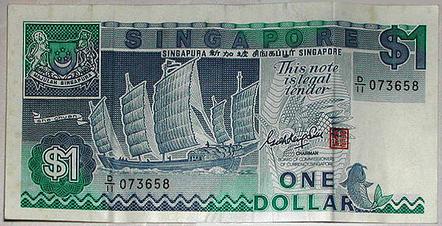The strength of the Singapore Dollar (SGD) is influenced by a variety of factors, both domestic and international. Here are key elements that impact the strength of the Singapore Dollar:
1. Economic Indicators:
- GDP Growth: Strong economic growth can attract foreign capital and contribute to a stronger SGD.
- Employment Rates: Low unemployment rates indicate a healthy economy, potentially strengthening the SGD.
- Inflation Levels: Moderate inflation is generally favorable for currency strength.

2. Monetary Policy:
- Decisions made by the Monetary Authority of Singapore (MAS) regarding interest rates and monetary policy influence the SGD. Higher interest rates may attract foreign capital, strengthening the currency.
3. External Trade and Current Account:
- Trade Balances: Singapore’s trade surplus can strengthen the SGD, while trade deficits may put pressure on the currency.
- Current Account Balances: A surplus in the current account is generally positive for the SGD.
4. Currency Peg:
- The SGD is managed within a policy band under the managed float exchange rate system. The MAS adjusts the SGD’s nominal effective exchange rate to keep inflation in check and maintain external competitiveness.
5. Interest Rate Differentials:
- Differences in interest rates between Singapore and major trading partners influence capital flows, affecting the SGD’s strength.
6. Global Economic Conditions:
- Economic stability and growth in major trading partners impact Singapore’s trade and overall economic conditions, affecting the SGD.
7. Government Fiscal Policy:
- Fiscal policies, including government spending and taxation, can impact economic conditions and, subsequently, the strength of the SGD.
8. Foreign Direct Investment (FDI):
- High levels of FDI can contribute to economic growth and strengthen the SGD.
9. Foreign Exchange Reserves:
- The adequacy of Singapore’s foreign exchange reserves provides a cushion for the SGD and supports its stability.
10. Political Stability:
- Political stability is crucial for investor confidence. Stable political conditions in Singapore contribute to the strength of the SGD.
11. Global Risk Sentiment:
- During times of global uncertainty, investors may seek safe-haven assets, potentially impacting the SGD.
12. Oil Prices:
- As an oil-importing nation, Singapore’s economy can be influenced by changes in oil prices, affecting the SGD.
13. Speculation and Market Sentiment:
- Traders’ perceptions and market sentiment can lead to short-term fluctuations in the SGD.
14. Regional and Geopolitical Factors:
- Developments in the Southeast Asian region and geopolitical events can influence the SGD.
15. Technological Advancements:
- Singapore’s reputation as a technological hub and its focus on innovation contribute to economic strength and can impact the SGD.
16. Global Trade Relations:
- Trade agreements and relations with major economies influence Singapore’s trade dynamics and impact the SGD.
17. Tourism Industry:
- The tourism sector’s performance can affect Singapore’s economy and contribute to the strength of the SGD.
18. Economic Reforms:
- Government initiatives and economic reforms can impact investor confidence and the strength of the SGD.
19. COVID-19 and Global Events:
- The COVID-19 pandemic and other global events can have widespread economic effects, influencing the SGD.
Singapore’s open and trade-dependent economy makes the SGD responsive to global economic conditions. A combination of sound economic policies, monetary management, and external factors contributes to the strength and stability of the Singapore Dollar.












